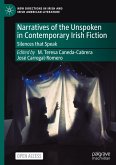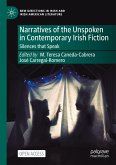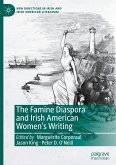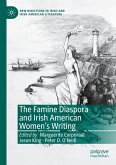
Broschiertes Buch
A Lingering Condition
11. November 2024
Palgrave Macmillan / Springer International Publishing / Springer, Berlin
978-3-031-40347-7

Gebundenes Buch
A Lingering Condition
1st ed. 2024
25. Oktober 2023
Palgrave Macmillan / Springer International Publishing / Springer, Berlin
978-3-031-40344-6
| eBook, PDF | 97,95 € |
eBook, PDF
24. Oktober 2023
Springer International Publishing
Ähnliche Artikel

Gebundenes Buch
Invalid Lives
1st ed. 2018
15. Februar 2018
Palgrave Macmillan / Springer International Publishing / Springer, Berlin
978-3-319-71445-5

Broschiertes Buch
Invalid Lives
Softcover reprint of the original 1st ed. 2018
4. Juni 2019
Palgrave Macmillan / Springer International Publishing / Springer, Berlin
978-3-319-89074-6

Gebundenes Buch
Silences that Speak
1st ed. 2023
20. Juni 2023
Ministry of Ciencia e Innovación / Palgrave Macmillan / Springer International Publishing / Springer
978-3-031-30454-5

Broschiertes Buch
Silences that Speak
1st ed. 2023
20. Juni 2023
Ministry of Ciencia e Innovación / Palgrave Macmillan / Springer International Publishing / Springer
978-3-031-30457-6

Gebundenes Buch
1st edition 2022
15. Dezember 2021
Palgrave Macmillan / Springer International Publishing / Springer, Berlin
978-3-030-83585-9

Broschiertes Buch
1st edition 2022
16. Dezember 2022
Palgrave Macmillan / Springer International Publishing / Springer, Berlin
978-3-030-83588-0

Gebundenes Buch
1st edition 2024
17. Januar 2024
Palgrave Macmillan / Springer International Publishing / Springer, Berlin
978-3-031-40790-1

Broschiertes Buch
3. Februar 2025
Palgrave Macmillan / Springer International Publishing / Springer, Berlin
978-3-031-40793-2

Broschiertes Buch
Softcover reprint of the original 1st edition 2018
10. Dezember 2019
Palgrave Macmillan / Springer International Publishing / Springer, Berlin
978-3-030-13200-2
Ähnlichkeitssuche: Fact®Finder von OMIKRON
